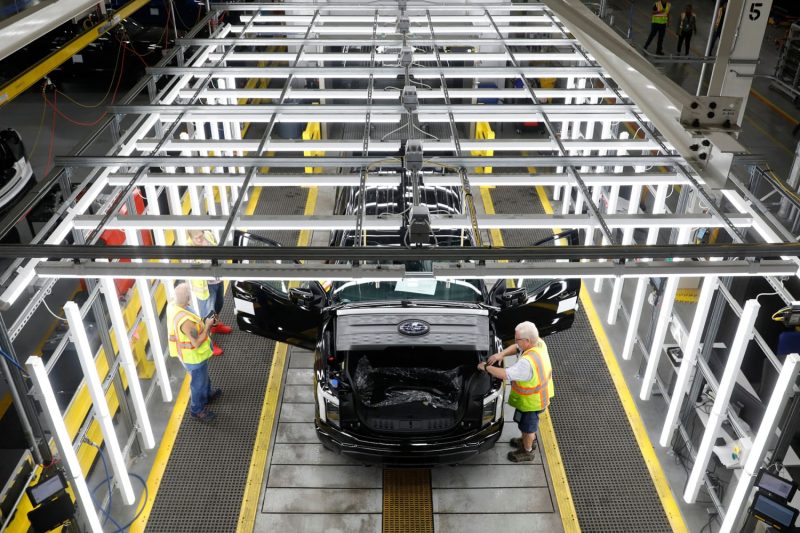
Ford Slows Down on Electrification Plans, Scraps Three-Row SUV in Strategy Pivot
Ford Delays New EV Plant and Cancels Electric Three-Row SUV as It Shifts Strategy
Ford Motor Company recently announced a significant shift in its electric vehicle (EV) strategy, which has led to the delay of the construction of a new EV plant and the cancellation of an electric three-row SUV model. This move is part of Ford’s efforts to adapt to the rapidly evolving landscape of the auto industry and position itself for long-term success in the increasingly competitive EV market.
One of the key changes in Ford’s strategy is the decision to delay the construction of a new EV plant in Kentucky. The plant was originally scheduled to be operational by 2025 and was expected to play a crucial role in Ford’s efforts to ramp up its production of electric vehicles. However, the company has now decided to postpone the construction due to various factors, including supply chain challenges and the need to reevaluate its overall EV manufacturing strategy.
In addition to the delay of the new EV plant, Ford has also made the decision to cancel the production of an electric three-row SUV model. This model was initially planned as part of Ford’s lineup of electric vehicles aimed at catering to the growing demand for larger EVs. However, the company has reevaluated its product portfolio and determined that the resources allocated to this particular model could be better utilized elsewhere.
Ford’s shift in strategy reflects the complex challenges that automakers face as they navigate the transition to electric mobility. The rapid growth of the EV market, coupled with technological advancements and changing consumer preferences, has forced companies like Ford to continuously reassess their plans and make adjustments to stay competitive.
Despite the delays and cancellations, Ford remains committed to its electrification goals and plans to invest heavily in EV development and production in the coming years. The company has already introduced several successful electric models, such as the Mustang Mach-E and the all-electric F-150 Lightning, and aims to further expand its EV lineup to meet the evolving needs of the market.
In conclusion, Ford’s decision to delay the new EV plant and cancel the electric three-row SUV reflects its proactive approach to adapting to the changing dynamics of the auto industry. By making strategic adjustments to its EV strategy, Ford aims to position itself for sustainable growth and success in the competitive world of electric mobility. The company’s continued focus on innovation and investment in electric vehicle technologies will be key to its long-term viability in the evolving automotive landscape.
